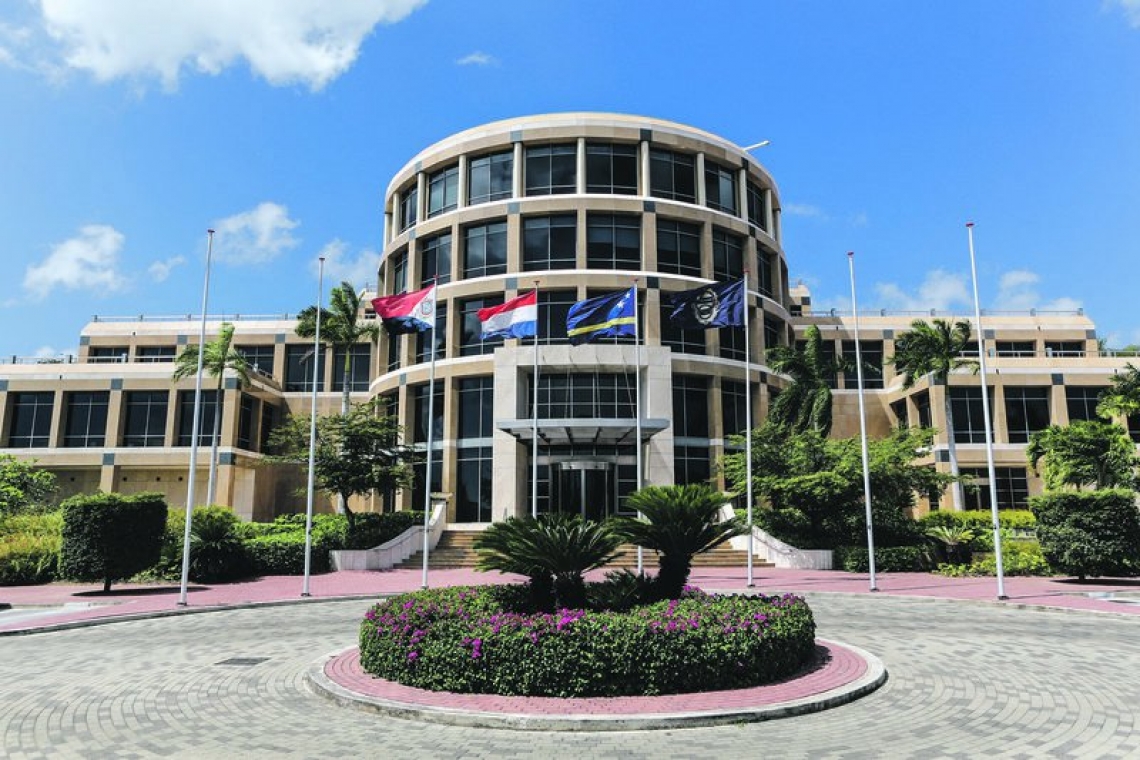~ Estimates show sharp economic contraction ~
PHILIPSBURG--The governments of Curaçao and St. Maarten have implemented some unavoidable precautionary measures related to the COVID-19 pandemic, the Central Bank for Curaçao and St. Maarten (CBCS) said in a statement on Sunday.
Both countries have closed their borders to commercial flights. Maritime traffic, with the exception of transport of oil products and freight, has been restricted. On request of the governments, CBCS has calculated the effects of the closure of the borders. The calculations show that these measures will have a significant adverse impact on the economies of Curaçao and St. Maarten.
CBCS said it supports the two governments’ inevitable decision to close the borders, as it was based on the threat that the virus poses to public health.
“Keeping the borders open would cost many lives and bring about a catastrophic overload on the health care system on the islands. None of this can be considered responsible options for small communities such as ours,” CBCS acting President Jose Jardim said.
The decision to close borders will, however, have an adverse effect on the economy. In particular tourism, transportation services and other services related to the tourism sector will be affected. The longer the closure of the borders lasts, the greater the negative effect will be on the economy. The magnitude of the adverse effect will also depend on how fast the economy will recover after the borders are reopened.
CBCS calculated four scenarios of the impact of the closure of the borders based on the duration of the closure: one month, two months, three months and six months.
A distinction was made between fast recovery and gradual recovery. In case of a fast recovery, economic activities, particularly in the tourism and transport sectors, will recover quickly once the borders are reopened. Meanwhile, in case of a gradual recovery, it is assumed that economic activities will reach their normal trend after approximately one year,” CBCS said.
Based on the latest projections of CBCS, in which the effects of the closure of the borders and the coronavirus were not taken into account, the economy of Curaçao would have contracted by 2.5 per cent in 2020. The effect of the closure of the borders on the economy of Curaçao is significant. Jardim emphasises that, in case of a fast recovery of economic activities after reopening the borders, the economy will contract in real terms by 4.5 per cent (closure of one month) to 14.2 per cent (closure of six months). The contraction is deeper in case of a gradual recovery, namely between 8.8 per cent (one month) and 19.4 per cent (six months).
Before the closure of the borders, the economy of St. Maarten was projected to grow in real terms by 2.9 per cent in 2020. The projections have been adjusted downward now that the borders have been closed. If the borders are reopened after one month, economic growth will slow to 0.8 per cent in case of a fast recovery.
The economy will, however, contract in case the borders remain closed longer. “If the borders remain closed for six months, the economy would even contract by 15.0 per cent,” according to the acting president. The outlook is worse in case of a gradual recovery. The economy of St. Maarten would then contract between 5.7 per cent (one month) and 29.2 per cent (six months).
CBCS has yet not taken into account the economic effects of a possible outbreak of the coronavirus (including increased healthcare costs and reduced economic activities) in Curaçao and St. Maarten. “CBCS once again stresses that Curaçao and St. Maarten do not have the tools and resources to mitigate such a crisis,” the release said.
“It is precisely in times like these that the Dutch government should be pointed to; one of the core principles on which the Kingdom is based and that is set out in Article 36 of the Charter for the Kingdom of the Netherlands: The Netherlands, Aruba, Curaçao and St. Maarten shall accord one another aid and assistance,” according to Jardim. Given the significant implications of the closure of the borders, rapid implementation of an aid package is paramount.







